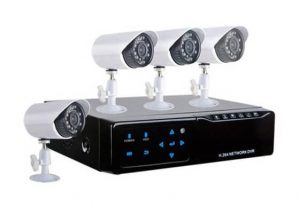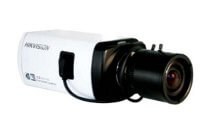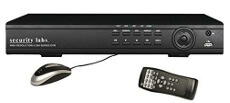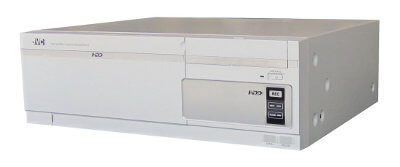Datarecovery.com recovers data from specialized storage systems quite frequently, and one interesting type is the digital video recording device. We perform work on all kinds of DVRs, often network video recorders, and most frequently the DVRs we recover data from are used with security camera systems. You can imagine if someone needs security system video, then it is likely crucial data. We’ve seen sometimes this data is to be used in a criminal or civil court case (see computer forensics service).
 DVRs generally use standard storage media such as hard drives to store their data as they are low cost and effective. This makes our initial recovery process much like that of other data recovery cases, as we need to diagnose problems and do what it takes to obtain a clean clone of the data. Some devices use RAID and of course we are experts in RAID data recovery as well. However, where it begins to differ is in the way data is stored.
DVRs generally use standard storage media such as hard drives to store their data as they are low cost and effective. This makes our initial recovery process much like that of other data recovery cases, as we need to diagnose problems and do what it takes to obtain a clean clone of the data. Some devices use RAID and of course we are experts in RAID data recovery as well. However, where it begins to differ is in the way data is stored.
How Security System DVR Data is Stored and Accessed
Unfortunately, data on a DVR device is usually not stored in plain video files, and this can be a critical detail if there is any kind of damage, if the original device no longer functions, or any other circumstance requires data recovery professionals to work with the underlying data.
 In most cases, you can’t just remove the DVR’s storage (hard drive or other), plug it into a computer, and view and copy off video files. Usually you need to use the DVR’s interface to export video that is playable in a common format. The reason for this is based on how a DVR functions. Making an efficient DVR system can be at odds with that kind of portability. For example, a DVR system can let you seek quickly around vast amounts of video and export video between two specific times. An indexing system can be used to allow for this, meaning additional metadata is inserted at regular intervals within the video data (that is not present in normal video data).
In most cases, you can’t just remove the DVR’s storage (hard drive or other), plug it into a computer, and view and copy off video files. Usually you need to use the DVR’s interface to export video that is playable in a common format. The reason for this is based on how a DVR functions. Making an efficient DVR system can be at odds with that kind of portability. For example, a DVR system can let you seek quickly around vast amounts of video and export video between two specific times. An indexing system can be used to allow for this, meaning additional metadata is inserted at regular intervals within the video data (that is not present in normal video data).
Another example lies with security systems having potentially many cameras recording to the same place at once. To record this data efficiently to disk, the video streams are recorded to the same physical location, taking advantage of the high sequential performance of hard disks and also preventing constant thrashing and premature wearing of the hardware. To be able to record multiple streams to the same place, the data streams are multiplexed – meaning they are broken up into bite-sized chunks that can be written quickly, and chunks from different cameras are written in rotating fashion. If one were able to view the stored video data, it would appear as jumping rapidly among the multiple cameras showing short bits of video from each.
How Video Data is Recovered
Fortunately we have plenty of experience recovering video from security system DVRs. We normally ask that the DVR device itself be sent along with the storage because sometimes it can be used to help in the recovery process. In cases where logical damage is found, however, using the device is likely not possible, and our work relies on analyzing and processing the raw data. We have developed software to help in situations such as this, for finding video index markers in raw data, extracting video data while cutting out DVR-specific metadata, and piecing together video chunks from different camera streams into single videos for each camera. With our tools and expertise, we have the ability to recover the data from a very broad range of security DVR and networked DVR systems including but not limited to Lorex, Hikvision, Zmodo, JVC, Q-See, as well as surveillance data stored by software solutions such as BlueIris, Ispy, or Zoneminder.



In the end, no matter what the reasons for failure, we strive to provide our client with the video data they need. We have a solid track record of DVR data recovery, and the equipment and expertise needed to tackle any DVR storage failure.
If you need help recovering your video data, please let us answer your questions today – call 800.237.4200.





